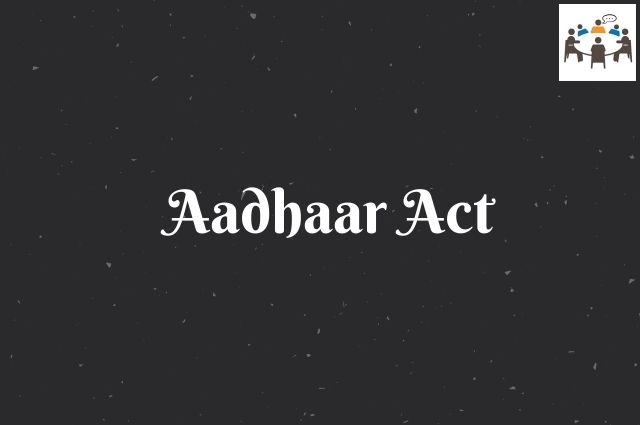Background:
- Aadhaar ( Targeted Delivery of Financial & other Subsidies, Benefits and Services ) Act, 2016 was passed in Lok Sabha in March 2016 as a money bill.
- Through this bill, Aadhaar has got legal backing. Govt will now use Aadhaar ID to verify the identity of beneficiaries for transferring the subsidies and benefits to the targeted beneficiaries through Direct Benefit Transfer Scheme.
- Persons, who resided in India for 182 days in the one year preceding the date of application for enrolling for Aadhaar are eligible for Aadhaar ID.
- Aadhaar is not compulsory yet. But to get subsidies or govt benefits, aadhaar id is required. People, who do not have aadhaar card yet can use alternative means of identification until they get their Aadhaar ID.
- As of March 2016, 97% adults, 67% of minors have aadhaar cards. And 4 to 7 lakh persons are being added into the Unique Identification system every day.
- 12-digit unique identity number called Aadhaar ID is issued by the ‘Unique Identification Authority of India’ ( UIDAI ).
- UIDAI collects biometric ( fingerprints, iris etc.) and demographic data of residents to issue Aadhaar.
- It shall not record information of race, caste, religion, language, records of entitlements, income and health conditions.
- UIDAI constitutes one Chairperson, 2 part-time members and One Cheif Executive Officer.
- Aadhar card id not a proof of citizenship.
- With Aadhar, India is now one among the 50 countries, which has national identity cards.
- Bill also mentioned guidelines to includes, homeless people, into the unique identification system.
- The information of any individual can be disclosed in the interest of National Security or on the order of the court.
- If any person gets unauthorized access to centralized data-base of Information collected under Aadhaar, she/he will be subjected up to 3 years imprisonments and minimum 10 lakh rupees fine will be imposed.
- Any requesting entity will take the consent of the individual before collecting her/his Aadhaar information and should use the information only for authentication purpose.
- If any Aadhar enrollment agency or the agencies seeking information does not follow rules, Rs.10,000 fine in case of individual, Rs.1 lakh in case of the companies and 1-year imprisonment will be imposed.
In Favor:
- Middlemen and leakages can be eliminated.
- It is close to impossible to create fake aadhaar cards as it is linked with biometric information. So, this is the best system to transfer govt benefits.
- Tax evasions can be detected.
- By following aadhaar system, leakages in Mahatma Gandhi National Rural Employment Guarantee Act ( MGNREGA ) payments got reduced by 12.2%.
- Implementation of Cooking Gas subsidies through Aadhar card saved Rs.15,000 crores to the Govt of India.
- According to the world bank report, India saves 1 billion dollars per year through the Aadhar card.
- ‘National Institute of Public Finance and Policy’ reported that the Aadhar card will save Rs. 25,100 crores by 2020-21.
Loopholes:
- Aadhar collects sensitive personal information. But who is responsible for protecting biometric database was not mentioned in the bill.
- Punishments are not severe for intruding into the centralized database of information collected under Aadhaar.
- This bill contradicts with the supreme court’s judgement that Aadhar card is not mandatory for beneficiary schemes but voluntary.
- What is the proof of residing in India for 182 days in the preceding 12 months of applying for aadhaar? It was not mentioned in the bill.
- Disclosing personal information in the case of ‘National Security’ can be misused.
- Still, a lot of people are unaware of their rights regarding benefit transfers through Aadhar. This unawareness can be misused.
- There are chances that Govt may do mass surveillance.
Conclusion:
The introduction of Aadhaar is a good step for eliminating middlemen and thereby the leakages and to ensure that the benefits will indeed reach the beneficiary. But the Government should also take responsibility for protecting the sensitive information of the public. And awareness programs must be conducted regarding Aadhar and Direct Benefit Transfer Schemes.
Your Turn…
What are your thoughts on Aadhar Act? Express your opinion through the comment section below. And subscribe to our blog to read answers to the trending GD topics.
Copyright @ Group Discussion Ideas.






